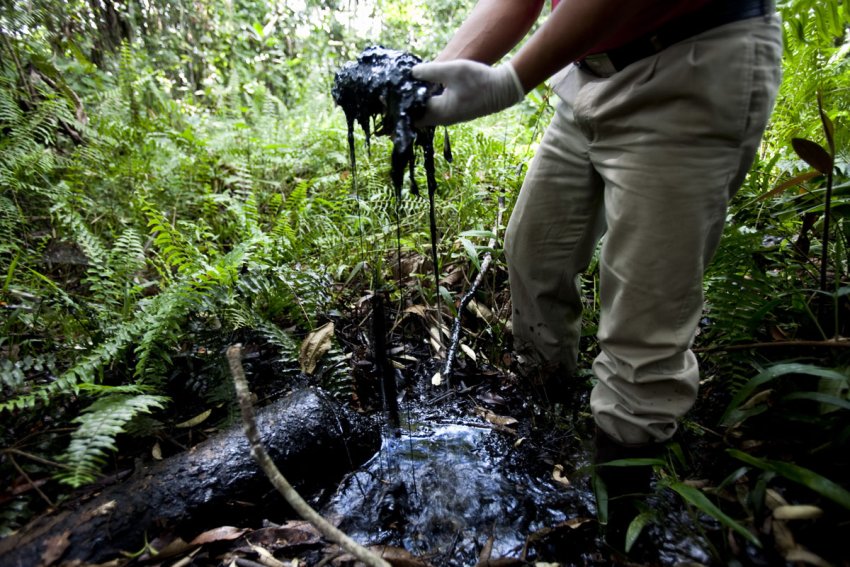
Oil giant Chevron Corp is fighting to avoid paying compensation awarded to about 30,000 Ecuadorean citizens severely affected by the dumping of billions of gallons of toxic waste in the Amazon.
Chevron called on a US appeals court on April 20 to stand by a US court decision last year that ruled the US$9.5 billion compensation package awarded by an Ecuadorian court had been secured fraudulently.
Chevron’s lawyers said the case of Steven Donziger, a US lawyer for a group of Ecuadoreans that sued the company, was “shot through with fraud”.
Donziger's lawyer, Deepak Gupta, responded that it set a dangerous precedent to allow the oil giant, which has spent years and hundreds of millions of dollars trying to dodge the compensation claim, to launch an “impermissible collateral attack” on the ruling of Ecuadorean court.
It will “open the door to attacks on judgments from around the world,” Gupta said. Gupta also noted that Chevron's key witness to prove the original case was “fraudulent”, Judge Alberto Guerra, had been paid at least US$326,000 by the company.
Rural workers and indigenous peoples have been locked in legal battle with Chevron, seeking to collect $9.5 billion awarded to them in February 2011 in compensation for devastating environmental damage caused by the company in Ecuador’s Amazon.
Between 1964 and 1990, oil company Texaco — which merged with Chevron in 2001 — is accused of causing one of the world’s greatest environmental disasters. It created a social disaster for the poor farmers and indigenous people living there by contaminating the rivers used for drinking, bathing and fishing.
At the April 20 ruling, Circuit Judge Richard Wesley pointed out that the judge who claimed the original case awarding the compensation to be corrupt, US District Judge Lewis Kaplan, could be contradicted by an arbitration panel.
Courthouse News Service said Wesley “appeared deeply skeptical that Kaplan had the authority to issue his ruling”. Wesley called it a “radical” decree.
The judge also noted that the outcome of the appeal could also be affected by a separate tribunal involving Chevron against the Ecuadorean state at The Hague. Hearings on that case are due to last about three weeks and could negate Kaplan's dismissal of Ecuador's judicial system.
This separate action relates to an agreement made between Texaco and a former Ecuadorean government that, as long as the oil company continued a certain level of investment in the South American nation, it would not be held legally responsible for damage it had caused.
Ecuador's Attorney-General Diego Garcia will argue that that agreement is void because the company had ceased to invest in the country five years before the agreement took effect.
[Reprinted from TeleSUR English (archived by Internet Archive).]